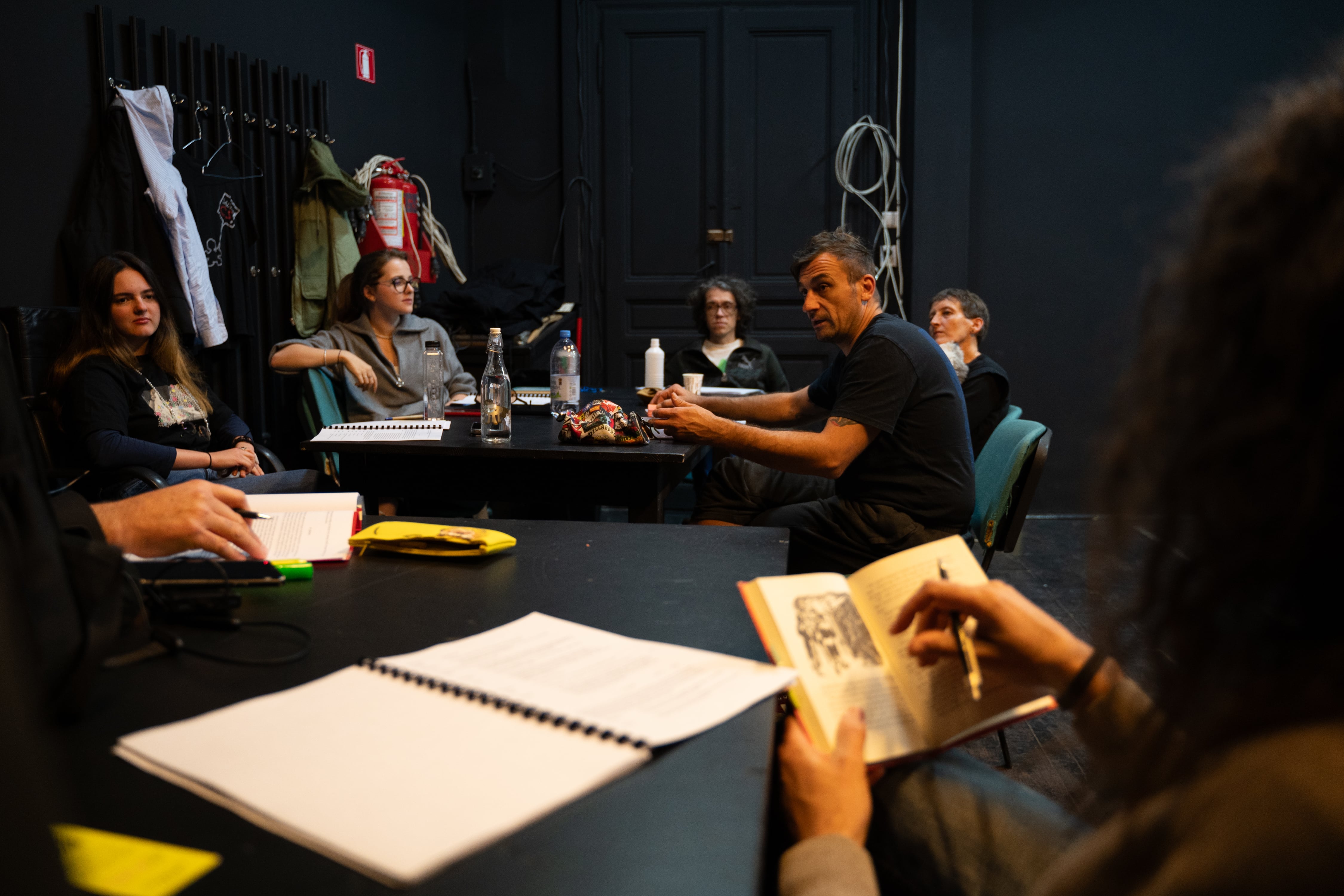
Enhancing collaboration relations with Baden-Württemberg Land
20 March 2009Enhancing collaboration relations with Baden-Württemberg Land
The German State Theatre in Timişoara (GSTT) will be in the Baden-Württemberg Land at the end of next week, and it will perform the play "Kamikaze", by Alina Nelega, at Bruchsal State Theatre on March 20th and 22nd 2009. This first performance in German premiered in 2007, within the partnership relations between the two theatres, with Christine Cizmaş (from Timişoara) and Wolf E. Rahlfs (from Bruchsal) as performing actors and Gavril Cadariu as director. Lucian M. Vărşăndan ensured the translation.
"Kamikaze" is a play with a distinct expression, revolving around unusual people and their frantic attempts to strike a balance between their own past, a story of passion allowing no compromise, and of love too late to be shared. Alina Nelega received numerous distinctions, such as the European Dramaturgy Award offered by the Heidelberg Theatre Festival in 2007.
This trip will also bring to Bruchsal Lucian M. Vărşăndan and Cornelia Winkler, the managing director and the literary secretary of GSTT, respectively, who will meet and discuss with their counterparts in Baden-Württemberg on the last details concerning one of the most important collaboration projects of the two theatres: to be more specific, Timişoara will host, in September 2009, the premiere of the first co-production of the two institutions – the play Faust, based on the texts by Goethe and Lenau. The distribution includes actors of both theatres and Carsten Ramm, the managing director of Bruchsal State Theatre, will be the play's director. The show will be performed in Romania until January 2010, the calendar of the second part of the future season including performances in Baden-Württemberg Land.
The cooperation relations established between the German stage in Timişoara and the Bruchsal State Theatre began in 2004, and resulted in the exchange of performances and actors, skills development courses in the fields of production dramaturgy and theatrical pedagogy, as well as other joint activities. The projects benefit from the support of The Danube Swabian Cultural Foundation in Baden-Württemberg Land and Timişoara City council.


